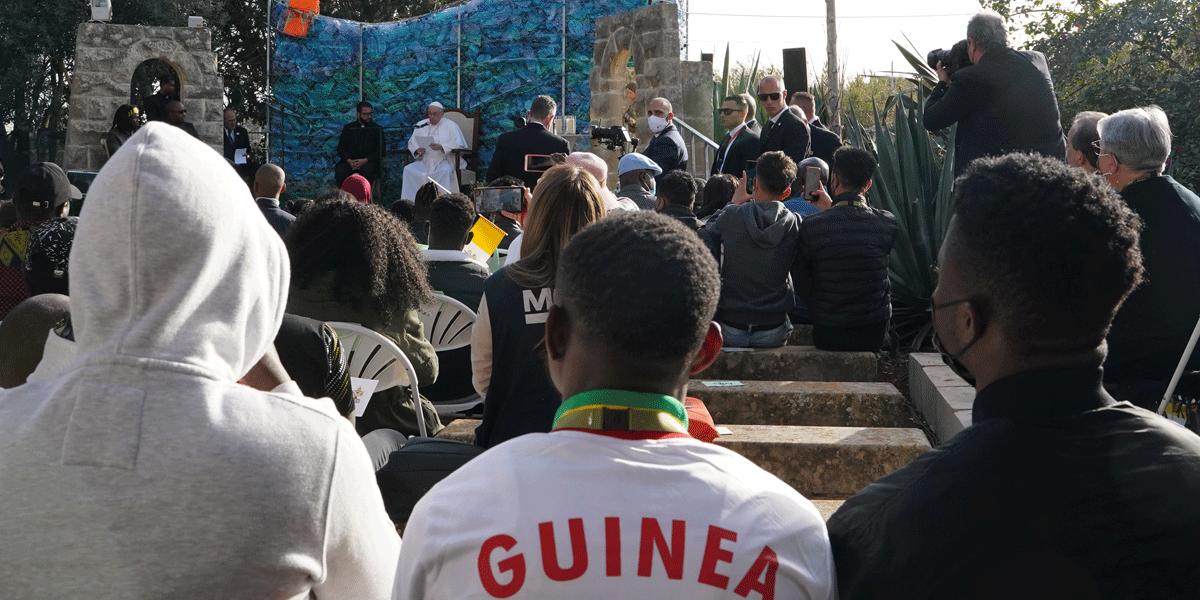


From hostile to hospitable: the Stranger is no enemy
Anton D'Amato
Archbishop’s Delegate for Migrants in Malta
Common to all Abrahamic religions, which incidentally were all born around the Mediterranean basin, is one important value: hospitality towards the stranger and those on the move. Yet nowadays, this same geographical region has become inhospitable and a place of death. This sea, an epicentre of contact between continents, cultures and creativity, is today a stretch of water which has become the final stop for many: a cemetery where far too many have lost their lives.
Hospitality does not emphasise our differences but our common humanity. It is not a concept which finds its starting point in religion. It is first and foremost a human value which uplifts the best qualities of humanity – and thus held in high regard by different faiths and cultures.
Yet, rather than hospitality, people arriving on our shores, like the El Hiblu 3, are often met with hostility. Hostility finds its roots in the Latin term hostis, meaning both stranger and enemy. The stranger brings a situation of uncertainty, which in particular political contexts can lead to fear. When this fear is exploited hostility, fundamentalism and even terror are fuelled and the stranger becomes ‘the enemy’.
A shift from hostility towards hospitality is required. But hospitality towards the migrant should not be based on charity.
When a foreigner resides among you in your land, do not mistreat them. The foreigner residing among you must be treated as your native-born. Love them as yourself, for you were foreigners in Egypt. I am the Lord your God. (Leviticus 19: 33-34)
Rooted in our common humanity, hospitality is about welcoming and making another feel valued; it is also about curing, caring and restoring. Hospitality allows for the adequate time and space to gain energy and continue the journey or stay in better shape. Yet journeying is not simply a voyage from one country to another. Our lives are a journey and on this journey we are called to encounter the other and be challenged and changed.
Many fear that this change will result in the erosion of our identities. Yet it is not realistic to think that our identities are static and immutable. They change or rather develop over time and every experience or circumstance can be an opportunity for our identities to bloom, grafted with the gifts the stranger brings.
In ancient – but also many non-westernised – cultures, food, shelter and safety were and are provided to the journeying stranger. Rather than through nationalistic framing of security and protection, migration needs to be understood as a basic human value.
Migrants should be met with empathy, welcoming and sharing. From focusing on protecting our borders and our wealth, we need to shift towards sharing it with others. Otherwise, the borders that we seek to protect would have closed us in an egoistic jail, unwilling to share with the stranger, threatening one as an enemy and a thief to be stopped rather than a stranger who is to be offered hospitality. The Maltese shores have witnessed the departure and arrival of many who journey in search of a better life. For the past centuries and millennia, our shores have been a departure point for Maltese people and a safe port and haven for those who arrive. Our harbours have sheltered numerous vessels and our lands have welcomed and safeguarded thousands. We need to recuperate this sense of hospitality as a society.
Ultimately, we are all on a journey. Whether from one place to another; whether from one country to another; whether on our life journeys. We are all migrants. When we seek to secure our borders more than our humanity we forget that hospitality is a value far more ancient, far more sacred than our confines. Hospitality is a sacred value without borders.